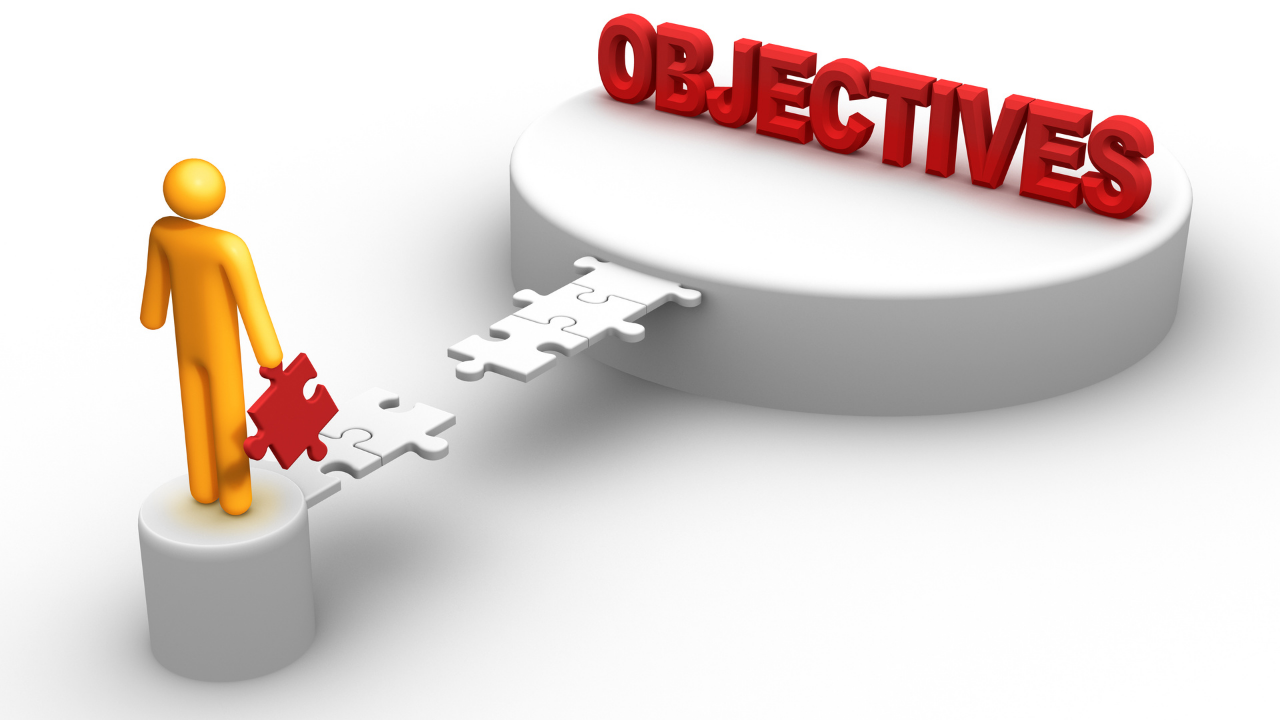How to win in The Wealth Game

Extracts from The Wealth Game – An Ordinary Person’s Companion - By Peter Alcaraz
Every game needs a “how to win” section in the instructions. Without one, what’s the point in playing?
There is a direct relationship between how hard you pursue something and the nature of the goal. The harder you pursue, the more you will achieve. To achieve, it is therefore important to have a strong goal. And without a goal of any kind, why would you act at all? To do so would be mindless, action by autopilot. Goals like surviving, finding a mate, and reproducing are instinctive, but in many areas, we need to create our own.

In martial arts, the objective is to physically demolish one’s opponent, either to crush or immobilize him or her. A direct approach is best, and there is no room for half-heartedness or uncertainty. A person who wavers and hesitates moves around without clear purpose, or stays rooted to the spot will lose. To achieve the goal, one needs to train one body and mind and learn many skills. It also helps to pick the right opponent.

More everyday examples are found in dieting and eating regimes. A goal of “I want to lose weight” is weak and woolly compared with “I want to lose two stone and keep it off,” “I want to fit into a size-ten party dress for my next birthday,” or “I’m going to give up meat, go gluten-free, or food combine.”
The definition of your net worth is the total value of all your cash and assets, less any debt or other obligations for which you are liable. Other commonly used terms are net assets or balance sheet. They all mean the same.
To be most effective, a goal must be the following:
- Worthwhile
- Measurable
- Realistically believable
Where’s the Finish Line?

In the sphere of personal wealth, too many people have no set objective at all or jump back and forth and sideways. Here are some of the approaches I have seen.
- Reach a number by a certain age
- Get rich
- Shopping list
- Early retirement
- More than everyone I know
- Live it up—spend and enjoy it all now, and let the future look after itself
- Have it all—live it up now, and retire early with a collection of goodies and a pot of money
- Work until state retirement age and beyond that if necessary
- No strategy whatsoever
In the wealth game, whether you choose to cross the finish line, carry on past it, or redraw it to a different place altogether is up to you.
Whichever way you choose, you need to know where the line is. The place not to be is doggedly flogging on without knowing that you have actually crossed it.
I know plenty of people who have won the game without realizing or accepting it. At best, they miss the satisfaction of knowing that their efforts are now optional, and at worst, they just waste their time.
Who wants to look up one day and realize that he or she could have stopped work years ago but didn’t?
Introducing “O”

O is the objective in the wealth game. It is designed to meet the requirements for an effective goal and be achievable without magic, extraordinary skills, or disproportionate luck.
I don’t suggest for a minute that everyone can reach it, but it is within the grasp of many more people than currently recognize it and who are busy cooking up Brown Windsor soup.
Here is the meaning of O:
I can live the life I want without needing to work for money again.
Why not say it out loud a few times, as if you are savouring the aroma and flavour of fine wine? Perhaps emphasize certain words as you examine their sound and feel from different angles. What images and sensations arise?
Notice these and enjoy the moment.
Now go ahead and ask this question: How on earth does this fulfil the criteria of being measurable or believable? Somehow, you need to work out what kind of life you want, how much it’s going to cost, and how long you’re going to live. And where’s the money coming from to pay for it?
Let’s say that this was called The Health Game: An Ordinary Person’s Wellness Companion with an objective “to live as long as your genetic coding allows.”
The title looks equally fanciful, and the objective, suitably unfathomable, but would this stop you trying your utmost to live longer? Not necessarily.
The health game is vast and all-encompassing, with individuals, businesses, and governments feverishly pursuing every conceivable avenue to prolong and improve life, a kind of Darwinian struggle to evolve.

Health is universally accepted as important to the well-being of individuals and society. From a young age, we are taught or learn that safety and health are our own personal responsibilities and that prevention is better than cure. In developed countries, it is promoted to greater or lesser degrees by the family, is on many school curricula, and is written about ad nauseam. We have access to our own personal health counsellors in the form of general practitioners and, for those who are in real need or who can pay, to specialists. While there is no health school for ordinary citizens, the educational resources, materials, and range of support are immense.
Scientists unpick genetic coding, environmental factors, and human activity, such as our diet, lifestyle, metabolism, and stress response, to better understand the pathways to longevity. The pharmaceutical industry cures us, and governments regulate to keep profit-hungry food and drink companies in some kind of line because bad health makes people miserable and is costly. As citizens, we feed hungrily on new knowledge, diets, supplements, exercise regimes, alternative medicine, and spiritual guidance. Success breeds success; we feel better, look better, and then work harder at it. Of course, none of us knows whether all this good activity will offer us a longer life. At an individual level, it’s unprovable, but we’re content with improving our chances and reaping the immediate rewards of fitness and good health, so we carry on anyway.
Whether we live to sixty or 120 is not the point, and it doesn’t matter that we don’t yet understand our genetic code or its implications. We just know that being fit and healthy is enjoyable and leads to good things, so we do what is in our power and control to achieve it. We may fail abysmally, but we do have a go.
Clearly, some people have no practical interest in longevity; sales of cigarettes, alcohol, sugar and its substitutes, saturated fat, salt, and processed meat and the corresponding lung, liver, and heart diseases and obesity and diabetes are testaments to this. But the point is that in most cases, at least in developed countries, we have a choice. We can play the health game if we want.
So having an unfathomable objective doesn’t in itself stop us from playing the health game. We simply redefine our objectives into ones that are easier to measure and achieve but still point us in the right direction.
In the wealth game, the components of O can be understood and measured. You just need to know-how.
✅ Learn more on The Wealth Game 😊: CLICK HERE
Phases of Play

There are three broad phases in the wealth game.
➡️ Beginner phase—this begins at the moment you proactively adopt wealth as a personal life goal. Until then, you may be on the field of play but aren’t consciously participating. You may be young and ambitious, a latecomer who, for some reason, hasn’t previously set out to achieve it, or a returner who adopted the idea but dropped it along the way and is now lining up to start again.
Here, your focus is on gathering materials and skills and making a start on the pot of money. The job is clear. There is no asset pot—or at least nothing big enough to service your needs for very long—and you may even be in the red with a negative balance sheet. Unless you build an asset base, all bets are off, and any future-needs planning is futile. All effort is on producing surplus cash and directing it to growth platforms, with minimal regard for current needs and no place for expensive luxuries.
➡️ Central phase—the transition to this phase arises when you have built at least two significant bases for future wealth generation, such as equity in residential property and a pension, and generate sufficient surplus cash to make further investment choices. You can bypass the beginner phase and enter here if you already have an asset base and cash flow and have made wealth a priority outcome.
This is a consolidation period when players build on their asset base and begin to sketch out future needs in more detail. The central phase is the most dangerous section of the game. It envelops players, smothers them with comfort- and energy-sapping demands, encourages needs expansion, and subtly erodes their will to escape captivity. The only certain way out is through single-minded determination to avoid the perils of neediness and waste and reach O without delay. You can easily let yourself succumb and put O aside “just temporarily,” with an intent to pick it up again, only to find that years pass, and you are caught. Suddenly there is a mountain to climb, and you are not fit to tackle it.
Many players never progress beyond this phase. They struggle on, forced to work for money to meet everyday needs, and O is either forgotten completely or becomes a mirage, an unattainable trick of the light truly available only to others. The end is often a messy combination of extended graft, forced sacrifice, and hardship tempered by state bailout.
➡️ The final phase, or end game—the end game arises when O appears clearly on the horizon and is reachable within five to ten years. How do you know that O is reachable within five to ten years? First, you have a sizeable asset base and a clear pathway to growing it further. Second, all categories of your future needs are known, and the constituents of each are identified and quantified. Third, you perform the analysis at the end of this book, and the results confirm that O will be reached in five to ten years. At this point, you will know that you are in the final phase.
If you bash on, blindly building the asset pot with no regard for its sufficiency, you will miss the signpost for the final phase, but if you regularly take stock of your net assets and needs, you will see the signpost and can make the turn at the earliest opportunity. Once O is clearly in sight, you will naturally begin to accelerate towards it. The knowledge of being in the final phase and the sight of O engenders confidence and excitement, reinforces resolve, injects energy, and pushes doubt, restlessness, lethargy, and other obstacles out of the way.
For the first time, O—until now a guiding light helping shape and direct actions—becomes real. You can almost reach out and touch it
✅ Learn more on The Wealth Game 😊: CLICK HERE
The Swiss Association supports professionals to join, navigate, & succeed in the blue ocean of family office and private wealth solutions. |
|
||||||
➡️ Join the Private Wealth & Family Office (PWFO) Association Community here: CLICK HERE
|




